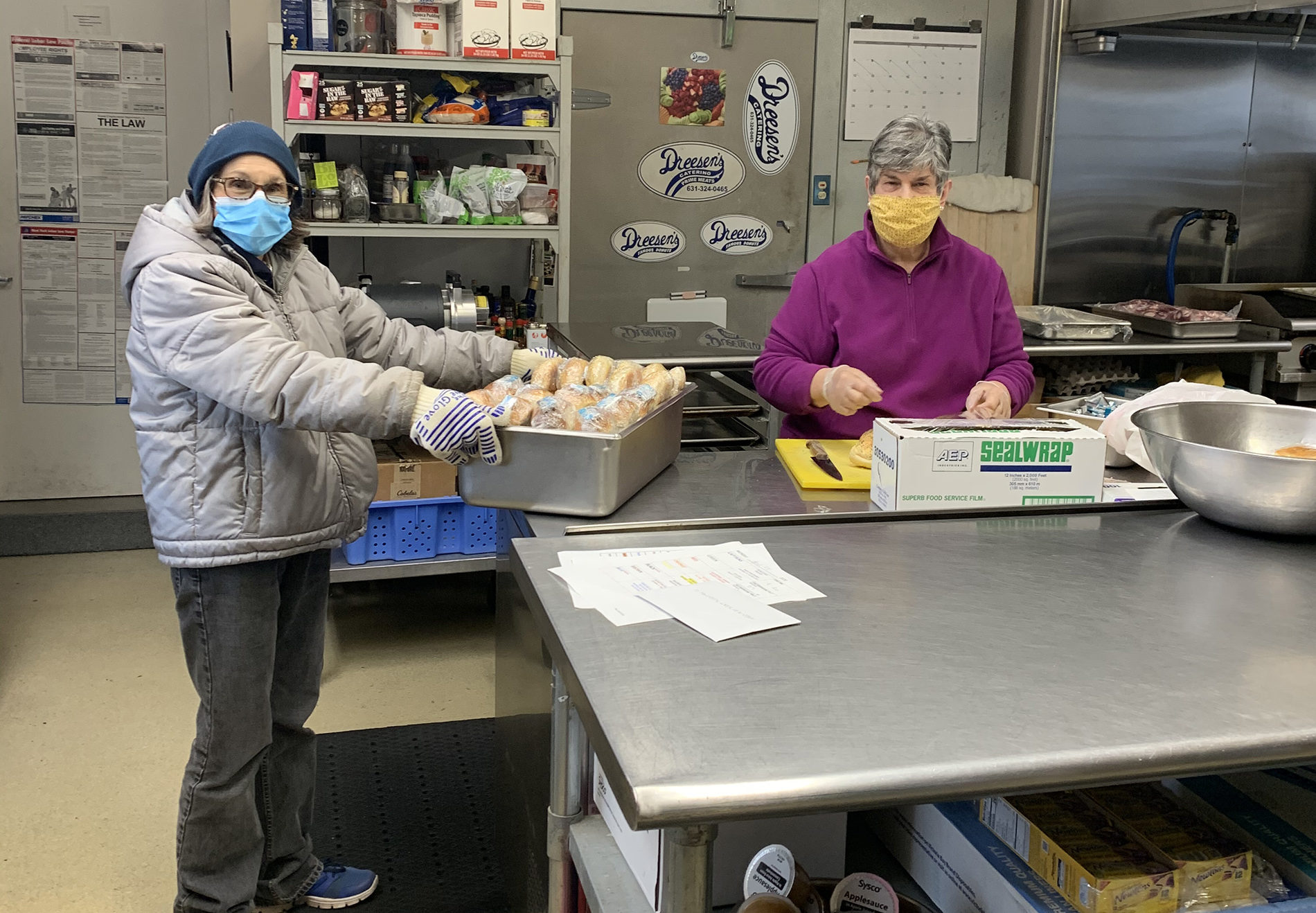Living Alone, But They’re Not Alone

For over 30 years, East Hampton Meals on Wheels has been serving homebound residents from Montauk to Wainscott.
Over 70 percent of its clients are older than 80; its oldest is 94. Currently, the nonprofit delivers two meals per day to clients, Monday through Friday. Weekend meals are provided on Friday upon request.
When the COVID-19-related lockdown was ordered, the organization was committed to stepping up during what was clear, from the beginning, to be extraordinary times. It reassured the community on its website that during the novel coronavirus outbreak the organization “will continue to deliver nutritious meals during this crisis. Our priority is to keep our clients and volunteers healthy.”
But there was no knowing that soon after posting that message, the East Hampton Senior Center, a major community resource providing meals to a large number of non-homebound seniors, would close due to the pandemic.
“Seniors who weren’t homebound, but concerned that going out shopping would expose them to the virus, began calling upon us for our services,” said Meals on Wheels President Tony Giannini.
New client requests rose quickly, and in just a few short weeks, Giannini said the list had doubled.
“We receive no federal, state, or county financial aid. Our ability to fund our efforts relies on private donations and sliding scale donations from clients able to provide them, and almost half are unable,” he said. “Compounding the difficulty of the new and unprecedented situation is the fact that most of our volunteers are seniors themselves. While most have continued working with us, we have no choice but to be prepared for a shortage on that front, as all involved must ask, ‘Is it unwise for them to be out and about?’”
All volunteers wear gloves and a mask, Giannini said, and Meals on Wheels delivery drivers remain in their car while the food is placed in their vehicle.
He said the nonprofit takes all necessary precautions and follows the Centers for Disease Control and Prevention and New York State Department of Health guidelines for everyday preventative actions that can help stop the spread of the coronavirus.
Colleen Rando, Meals on Wheels’ secretary, who, with her husband, Rob, also volunteers, said during a home visit she noticed a Christmas card sent by the organization still atop the client’s mantle.
“It was the only card there,” she said. “It was proudly displayed, front and center, many months after the holiday.”
“It’s important to remember that our home visits are also wellness checks,” Giannini added. “My own 89-year-old father, a Meals on Wheels client himself, lives in Indiana. My sister had just visited him, but after she left, he took a fall and couldn’t get up. If it weren’t for the timely visit from Meals on Wheels, who knows how long he would have waited for help. Meals on Wheels saves lives. I speak from personal experience. And with profound gratitude.”
He reiterated donations have never been as important as they are now, and with the probability that summer fairs will be cancelled, which is where a major portion come from, the nonprofit is looking to safeguard for the future, too.
“The homebound population we serve depends on us for more than just food,” Giannini said. “In many cases our volunteers provide the only social interaction our clients have. We are a reassuring presence to them, a daily reminder that while they may be living alone, they are not alone.”
To learn more information, find out how to volunteer, or to donate, visit www.ehmealsonwheels.org.
karen@indyeastend.com




